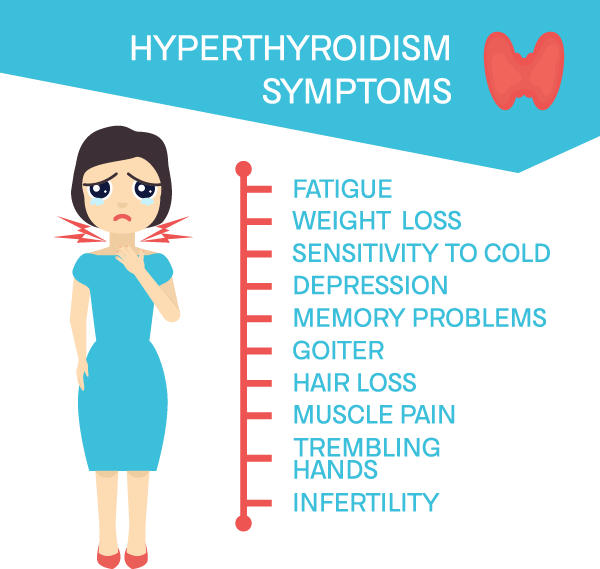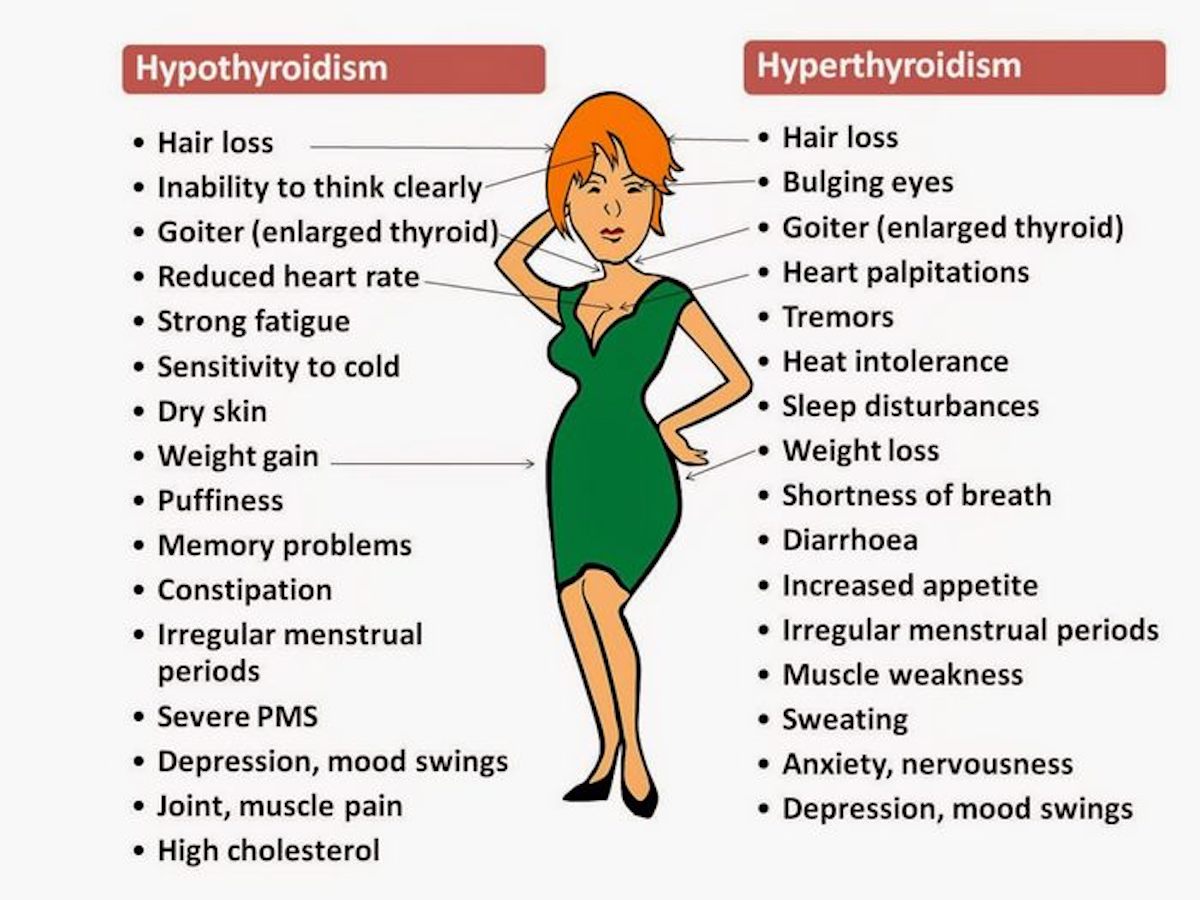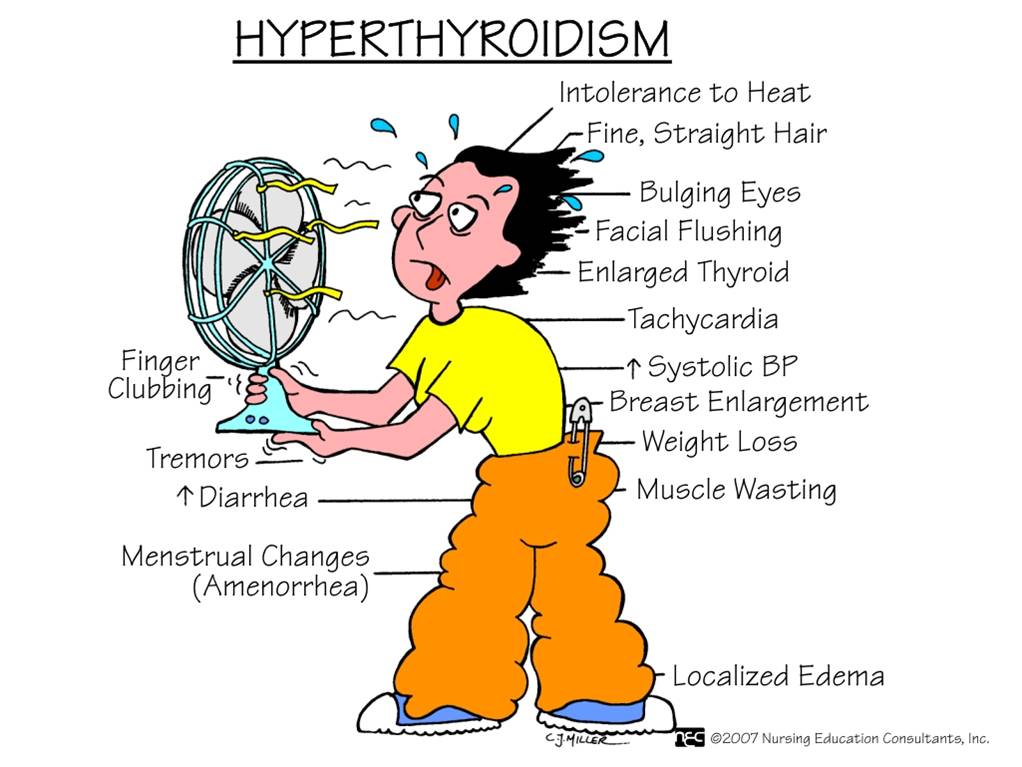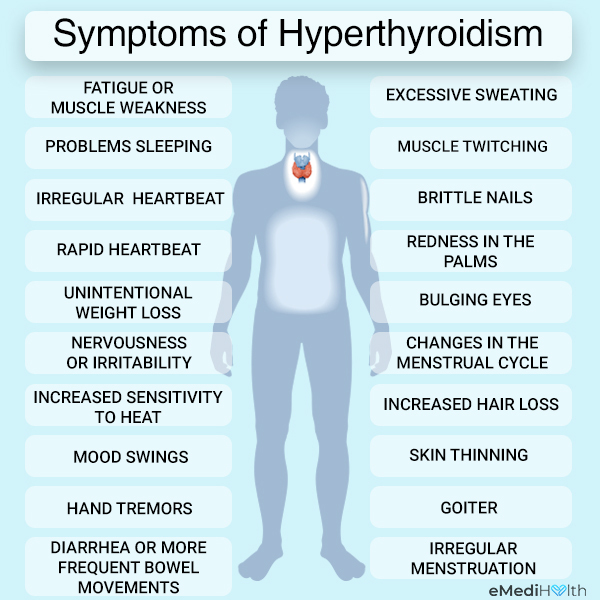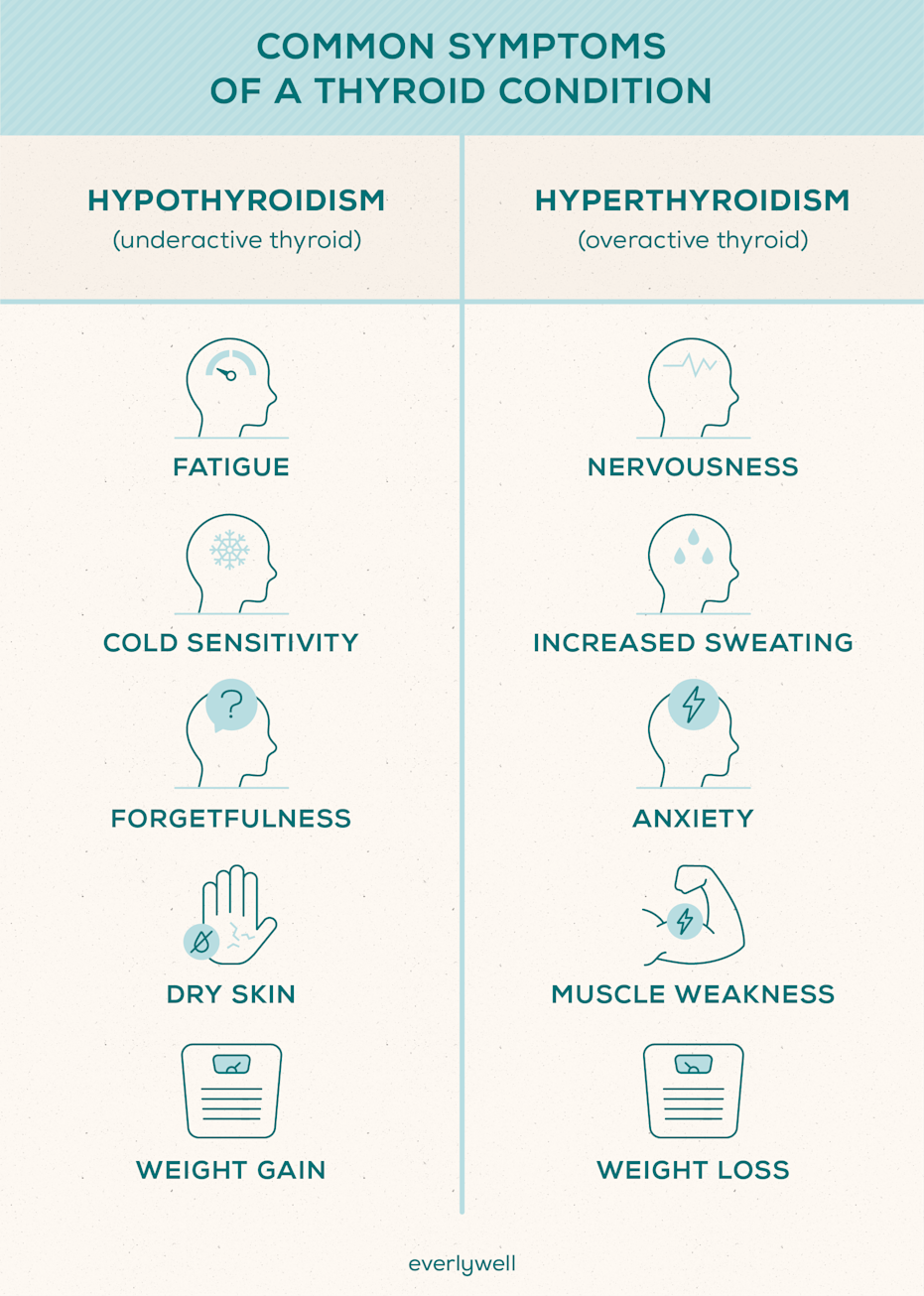Who Else Wants Info About How To Tell If You Have Hyperthyroidism

Thyroid disease symptoms include fatigue, unexplained weight changes, a racing heart, and other signs that are related to a thyroid disorder.
How to tell if you have hyperthyroidism. Your provider also examines your thyroid gland as you swallow to see if it's larger than usual, bumpy or. It is also referred to as thyrotoxicosis, or an overactive. Symptoms complications diagnosis treatment risk factors outlook hyperthyroidism occurs when your thyroid gland is overproducing thyroid hormones.
Swelling in your neck from an enlarged thyroid gland (goitre) an irregular and/or unusually fast heart rate (palpitations) twitching or trembling. Perform a physical exam to: Hyperthyroidism is a condition where the thyroid gland produces more thyroid hormones than is needed by the body.
This is followed by blood tests to check your tsh, t3, and t4. Rapid or irregular pulse. Nervousness, anxiety, or crankiness mood swings fatigue or weakness sensitivity to heat a swollen thyroid (called a goiter ).
The most common difference between the two diseases relates to hormone levels. Blood clots, stroke, or heart failure. When you have hyperthyroidism, it can make your body’s “fight or flight” system work too much and cause diarrhea and other gastrointestinal (gi) tract.
Look for signs of too. This involves drinking radioactive iodine liquid or taking capsules to detect how much of the substance collects in the thyroid. Hypothyroidism leads to a decrease in hormones.
Noticing the signs of hyperthyroidism 1. A swelling in your neck caused by an enlarged thyroid gland (goitre) an irregular and/or. Hyperthyroidism can be treated with antithyroid drugs, radioactive iodine,.
Common signs an overactive thyroid can also cause the following physical signs: Hyperthyroidism can lead to: Baltimore county animal services is urgently seeking rescue placement for a.
Radioactive iodine uptake test: The diagnosis of hyperthyroidism includes a study of your medical history and a physical exam. Changes in appetite, digestion, and weight.
If your doctor suspects that you have hyperthyroidism, they may: Trembling in your hands and fingers (called tremors) sweating changes in your period increased sensitivity to heat changes in bowel movements, especially more frequent. Symptoms of hyperthyroidism include a rapid heartbeat, weight loss, increased appetite and anxiety.
Identify the general symptoms that can come with hyperthyroidism. Hyperthyroidism is known for producing specific. You have an increased risk of developing heart problems such as abnormal heart rhythm (atrial fibrillation), a weak.
:max_bytes(150000):strip_icc()/thyroid-disease-in-children-2634344-01-a2277244835147078cae0faa27f1d798.png)
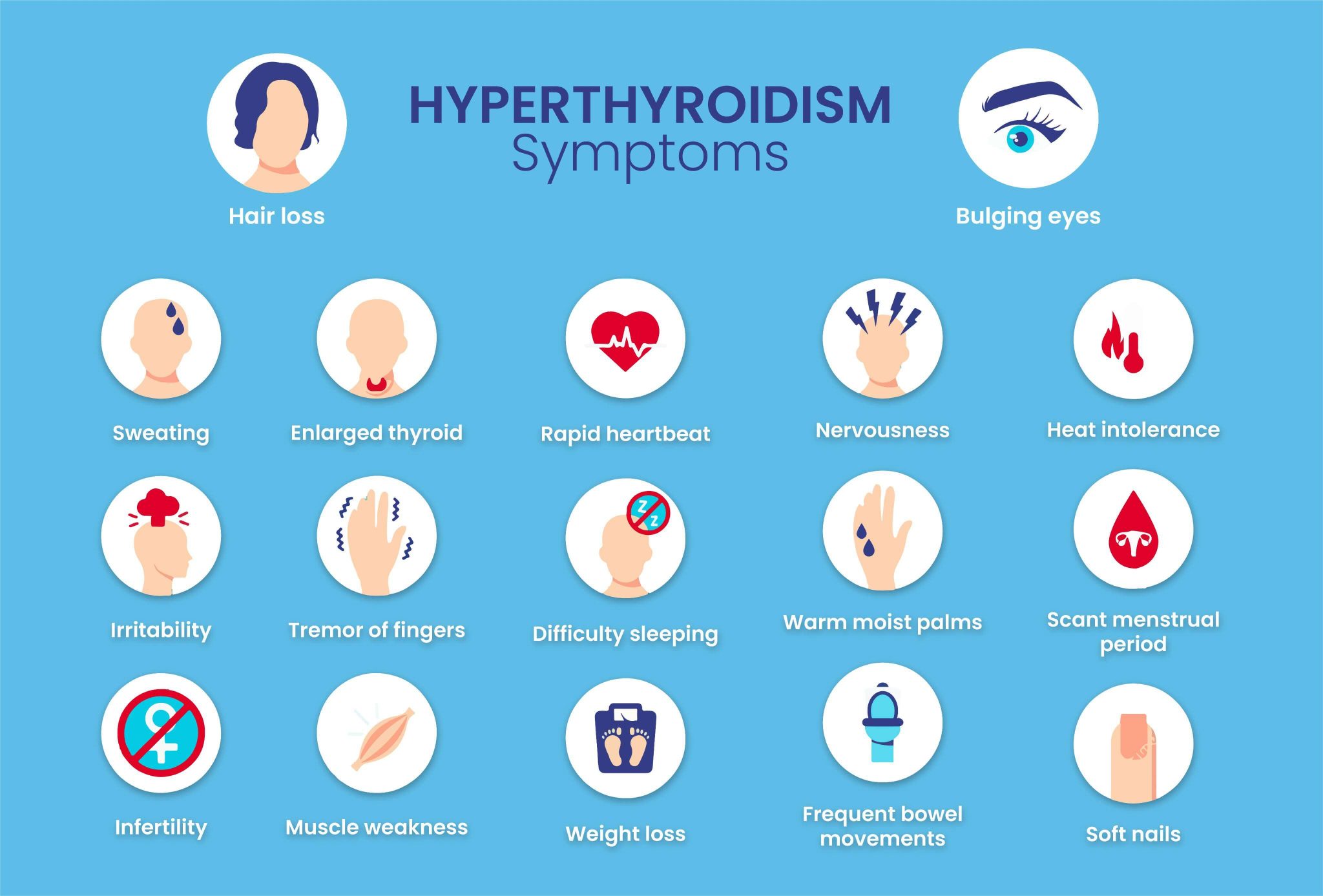
:max_bytes(150000):strip_icc()/hyperthyroidism-symptoms2-5ae1f90e30371300367d5dce.png)
